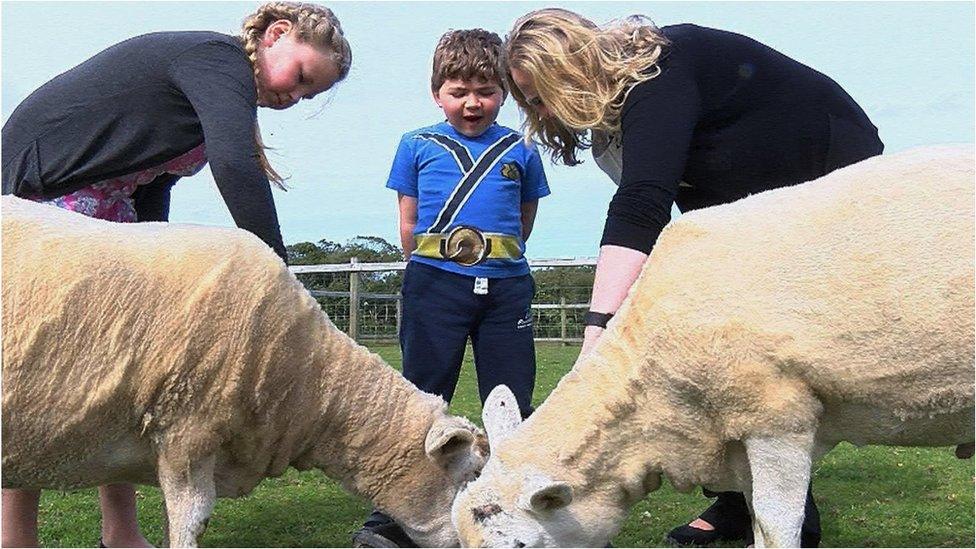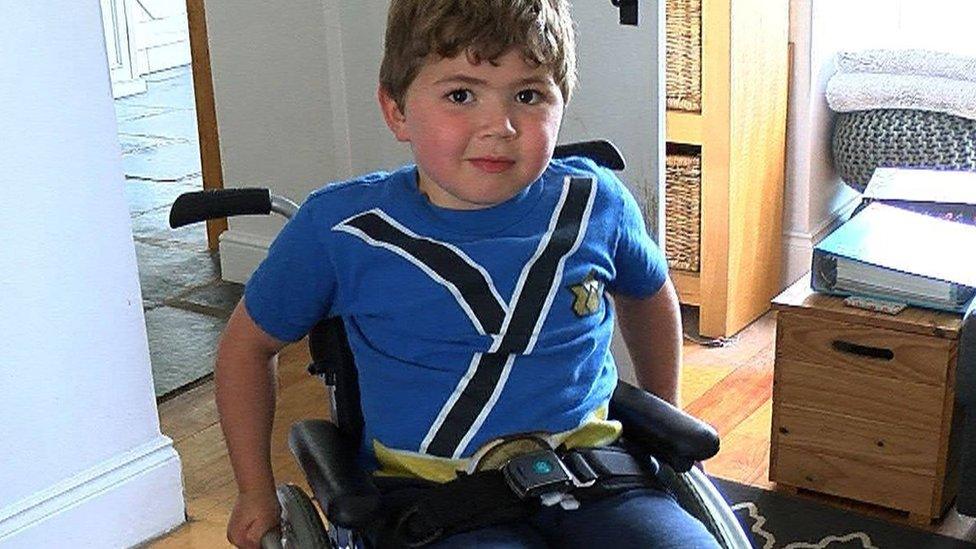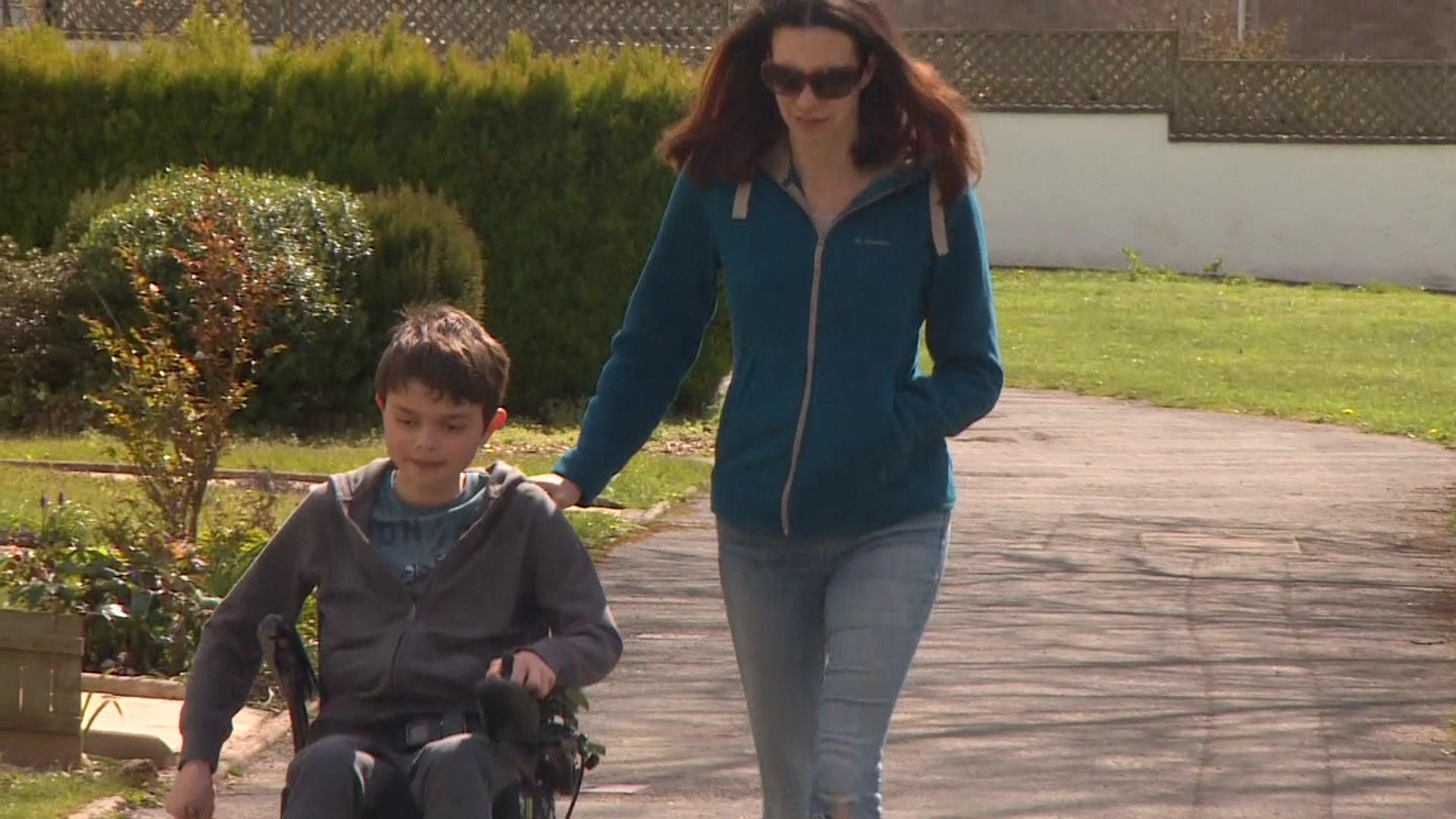IoM should 'think again' to help boy with muscle-wasting disease
- Published

Finley Hesketh's family have been told that he will not be given a new drug which could delay his deteriorating health
The Manx government has been urged to reverse its "cruel and unfair" decision to refuse medication to a seven-year-old boy with a muscle-wasting disease.
Finley Hesketh has Duchenne Muscular Dystrophy - an incurable condition which sees muscles gradually weaken.
In England he would be eligible for Translarna, a new drug which could help prolong his physical independence.
The Manx government in June ruled the drug "will not be routinely funded" as its effectiveness is not yet known.
It added: "The evidence for clinical and cost effectiveness is currently inadequate to support funding as a priority, given all other calls on resources.
The government said that the Clinical Recommendations Committee on the Isle of Man concluded that the evidence for clinical effectiveness was currently "inadequate" to justify a six-figure-sum for each patient every year.
Kate Beecroft MHK said: "This is cruel and unfair - we should be protecting the vulnerable and this little boy Finley is certainly that."
Mrs Beecroft, who said she would discuss the case at Tynwald on Tuesday, added: "Maybe the health minister will give a different response when he knows the public are watching.
"There is only one child on the island affected and he should be given the same chance as children in England and Wales."

Muscular Dystrophy UK says Translarna gives patients hope of being able to walk for longer
In 2014 Translarna was approved for use in the European Union and is now used in several countries.
While NHS England made it available from April 2015, in the Isle of Man it is not available.
"The clock is really ticking for our son," said Finley's mother, Kirstie.
"In a few years' time he could lose his ability to walk and by the time he is a teenager the condition will probably start affecting his lungs and heart.
"His life expectancy is late 20s, early 30s so he will probably die before us - that's a scary prospect.
"Our lives are being made more difficult just because we live on the Isle of Man.
"I was born here, Finley was born here. We don't want to leave home but if it comes down to it I will do everything I possibly can to help my son."
- Published15 April 2016

- Published16 April 2016

- Published24 May 2014
